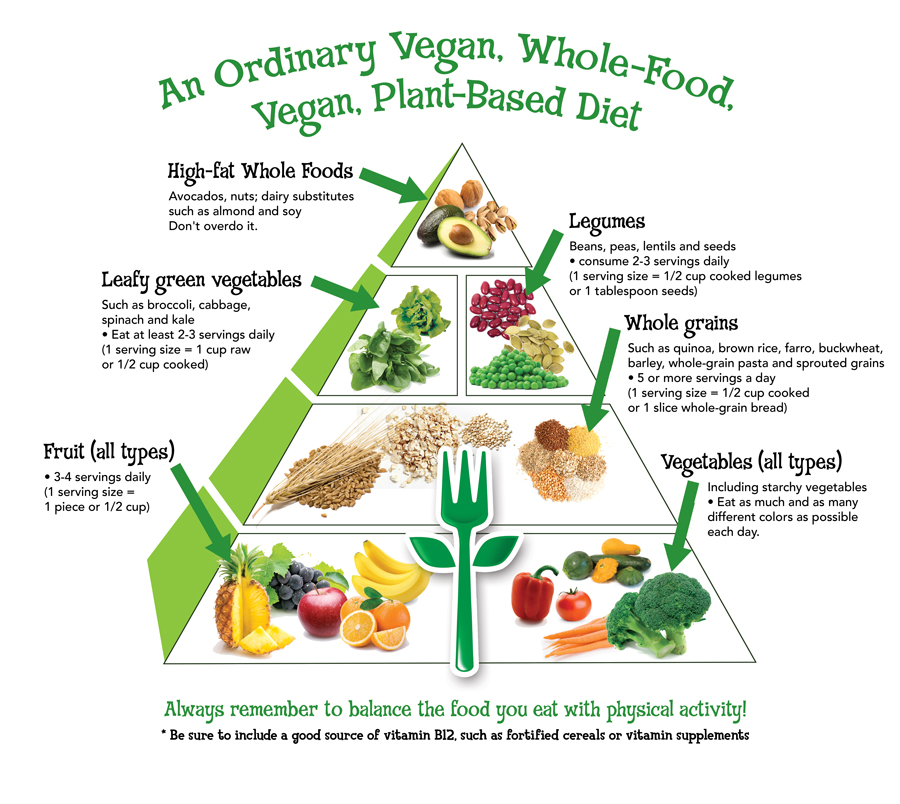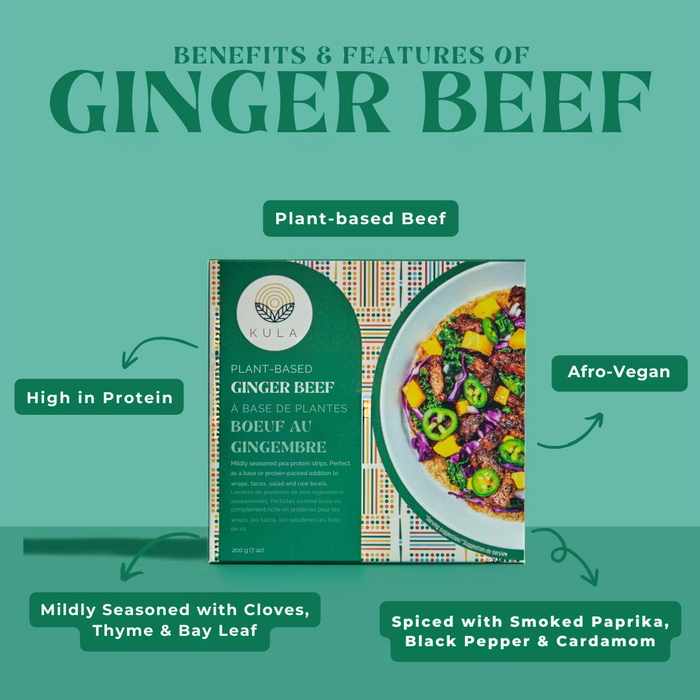How to Make Gluten Free BBQ Sauce from Scratch: A Step-by-Step Tutorial
How to Make Gluten Free BBQ Sauce from Scratch: A Step-by-Step Tutorial
Blog Article
Everything About Healthy And Balanced Food: Benefits of Checking Out Plant Based Alternatives
The conversation bordering plant-based diet regimens has actually gotten substantial attention in recent years. Numerous individuals are exploring the prospective health and wellness benefits, nutritional benefits, and ecological impacts connected with these dietary selections. As individuals become more knowledgeable about their food's impact on wellness and sustainability, inquiries occur about the practicalities of taking on such a lifestyle. What specific changes can one anticipate, and how might these choices reshape not just personal wellness yet also the planet's future?
Recognizing Plant-Based Diet Plans
Although many individuals link plant-based diet plans mainly with vegetarianism or veganism, these diet plans can encompass a variety of eating patterns that prioritize whole, minimally refined plant foods. Such diets usually include fruits, veggies, whole grains, legumes, seeds, and nuts, while restricting or getting rid of animal items. This flexibility enables people to tailor their dietary selections according to nutritional demands and personal choices. Some might adopt a mostly plant-based diet regimen while still periodically consuming meat or dairy products, usually referred to as a flexitarian technique. The focus stays on including even more plant foods, which can lead to a varied selection of meals and flavors. Comprehending these numerous analyses of plant-based consuming is necessary for appreciating its access and appeal in modern food society.
Wellness Advantages of Plant-Based Foods
The health benefits of plant-based foods are significant, offering a nutrient thickness advantage that sustains general wellness. Research study shows that these foods can enhance heart health and play an important role in reliable weight monitoring. By integrating much more plant-based choices, people might enhance their nutritional selections and promote long-term wellness.
Nutrient Density Advantage
Nutrient thickness plays a vital duty in the health and wellness advantages of plant-based foods, making them a compelling selection for those looking for a well balanced diet plan. Plant-based foods, such as fruits, veggies, legumes, nuts, and entire grains, are frequently rich in necessary vitamins, minerals, and antioxidants while being lower in calories. This high nutrient density enables individuals to consume fewer calories while still satisfying their nutritional demands. Additionally, these foods are packed with nutritional fiber, advertising gastrointestinal wellness and assisting in weight monitoring. By integrating nutrient-dense plant-based choices, customers can improve their general health and wellness, sustain their body immune systems, and decrease the risk of persistent diseases. Ultimately, the nutrient density of plant-based foods highlights their value in a health-conscious lifestyle.
Heart Wellness Enhancement

Weight Administration Assistance
Along with promoting heart health and wellness, a plant-based diet can substantially help in weight administration. This dietary approach highlights whole foods such as fruits, veggies, vegetables, nuts, and entire grains, which are normally lower in calories and higher in fiber contrasted to animal-based items. The high fiber content aids enhance satiety, decreasing total calorie intake. Plant-based diets are commonly abundant in important nutrients while reduced in unhealthy fats, making it much easier to keep a healthy and balanced weight. Research study suggests that people that take on a plant-based lifestyle have a tendency to have reduced body mass indexes (BMIs) and experience even more successful fat burning compared to those who take in meat-heavy diets. Embracing plant-based options is a critical option for effective weight management.
Nutritional Value of Plant-Based Components
Plant-based ingredients are rich in necessary nutrients, supplying a varied selection of vitamins, minerals, and anti-oxidants that contribute to overall health. A comparison of protein resources reveals that while pet items are often deemed remarkable, lots of plant-based choices supply appropriate healthy protein and various other beneficial substances. Recognizing the dietary value of these components can help individuals make educated dietary options.
Vital Nutrients in Plants
Nutrient-rich components found in plants offer a varied variety of necessary nutrients that add significantly to total health. These active ingredients are rich in vitamins A, C, and K, which support immune function, vision, and blood clot, respectively. On top of that, plants offer vital minerals such as potassium, calcium, and magnesium, crucial for heart wellness, muscle function, and bone toughness. The visibility of fiber in plant-based foods aids food digestion and promotes a healthy and balanced intestine microbiome. Anti-oxidants, located generously in fruits and vegetables, aid fight oxidative anxiety and minimize inflammation. Lots of plant foods are reduced in calories yet high in nutrients, making them an exceptional option for those seeking to preserve a healthy weight while ensuring optimal nutrient intake.

Contrasting Protein Sources
Healthy protein sources differ substantially in their dietary profiles, with plant-based active ingredients offering distinct benefits. Unlike animal healthy proteins, which frequently include hydrogenated fats and cholesterol, plant healthy proteins often tend to be lower in these unhealthy elements. Legumes, nuts, seeds, and whole grains are rich in crucial amino acids, fiber, vitamins, and minerals. Lentils supply high protein content along with significant iron and folate, while quinoa is a full protein, using get more all 9 necessary amino acids. In addition, plant-based proteins are often come with by anti-oxidants and phytochemicals that support overall health and wellness. The change to plant-based protein sources not just improves dietary intake however additionally lines up with sustainable nutritional techniques, decreasing ecological effect and advertising long-lasting health benefits.
Environmental Effect of Plant-Based Eating
As understanding of climate change grows, many individuals are discovering sustainable dietary selections that can substantially minimize their ecological footprint. Plant-based consuming has become a significant factor to decreasing greenhouse gas exhausts, which are mostly associated with livestock production. The farming of fruits, beans, grains, and veggies normally requires fewer sources, such as water and land, compared to pet farming. Additionally, plant-based diet regimens can cause lowered logging, as much less land is needed for grazing animals or expanding pet feed. By shifting in the direction of plant-based choices, customers can sustain biodiversity and promote healthier ecological communities. Overall, embracing my company plant-based eating not just advantages individual health and wellness yet also represents an essential action toward environmental sustainability and preservation initiatives.
Overcoming Common Misconceptions
While several individuals acknowledge the advantages of a plant-based diet plan, numerous false impressions often deter them from totally embracing this way of life. A typical idea is that plant-based diet plans lack sufficient healthy protein; nevertheless, many plant sources, such as vegetables, nuts, and tofu, offer sufficient healthy protein. In addition, some think that this diet plan is pricey, when in reality, staples like beans, rice, and seasonal veggies can be quite economical. Another misunderstanding is that plant-based eating is extremely restrictive, whereas it actually offers a diverse array of foods and flavors. Lots of stress that a plant-based diet plan may lead to shortages, yet with correct planning, people can acquire all required nutrients, consisting of minerals and vitamins, while enjoying a vast range of delicious meals. Vast Tips for Transitioning to a Plant-Based Lifestyle
Making the shift to a plant-based lifestyle can be an enhancing experience, though it typically calls for some support to browse the first changes. First, individuals are urged to begin gradually, including even more fruits, veggies, beans, and whole grains into their dishes while decreasing meat and milk consumption. Meal preparation is crucial; preparing a weekly food selection can help alleviate the adjustment and stop last-minute harmful selections. Checking out brand-new recipes and cooking methods can also preserve and improve the experience exhilaration regarding plant-based consuming. Furthermore, signing up with support system or neighborhoods can offer inspiration and share important suggestions. Ultimately, staying informed concerning nutrition warranties balanced meals, avoiding shortages while promoting a healthy, gratifying plant-based lifestyle.
Delicious Plant-Based Meal Ideas
Discovering scrumptious plant-based dish concepts can inspire people to welcome a much more nourishing diet plan. One preferred option is a hearty quinoa salad, including cherry tomatoes, cucumber, and a vibrant lemon-tahini clothing. Another fave is a savory lentil stew, loaded with carrots, celery, and aromatic herbs, perfect for a calming dinner. For breakfast, over night oats made with almond milk, chia seeds, and covered with fresh berries offer a nourishing begin to the day. In addition, a vivid veggie stir-fry with tofu and a variety of vivid veggies can be a quick yet pleasing dish. Lastly, luscious avocado toast on whole-grain bread, sprayed with spices and seeds, offers an easy yet savory treat. These dishes showcase the range and splendor of plant-based consuming.

Often Asked Concerns
Can a Plant-Based Diet Plan Offer Sufficient Healthy Protein?
The concern of whether a plant-based diet plan can provide sufficient healthy protein prevails. Various sources, including vegetables, nuts, seeds, and entire grains, can meet healthy protein requires properly, supporting a nourishing and well balanced diet plan for individuals.
Are Plant-Based Diet Plans Ideal for Children?
The viability of plant-based diet plans for youngsters depends upon cautious planning. Ample nutrients need to be guaranteed, including proteins, minerals, and vitamins. With proper guidance, such diet regimens can support healthy development and growth in youngsters.
Exactly how Do I Eat in restaurants on a Plant-Based Diet?
Dining out on a plant-based diet entails seeking restaurants with diverse food selections, requesting for adjustments, and discovering vegan-friendly options. Planning in advance and connecting nutritional choices can improve the eating experience while keeping dietary selections.
What Prevail Allergens in Plant-Based Foods?
Common irritants in plant-based foods include soy, gluten, nuts, and seeds - Plant Based Beef. People adhering to a plant-based diet plan needs to be mindful of these allergens and read tags carefully to prevent negative reactions and guarantee safe consumption
Can Plant-Based Diets Assist With Weight Loss?
Study indicates that taking on a plant-based diet plan may facilitate weight reduction because of its commonly reduced calorie thickness and higher fiber discover this web content. This mix can enhance satiety, assisting people manage their caloric consumption successfully. Lots of individuals link plant-based diet plans mainly with vegetarianism or veganism, these diet plans can include a broad variety of consuming patterns that focus on entire, minimally refined plant foods. Nutrient thickness plays a necessary function in the health and wellness benefits of plant-based foods, making them an engaging option for those looking for a balanced diet. Plant-based diets have actually been shown to noticeably enhance heart health, as they frequently consist of elements that support cardiovascular function. In addition to advertising heart health, a plant-based diet plan can substantially help in weight administration. A common belief is that plant-based diet regimens do not have sufficient healthy protein; nevertheless, numerous plant sources, such as legumes, nuts, and tofu, give adequate protein.
Report this page